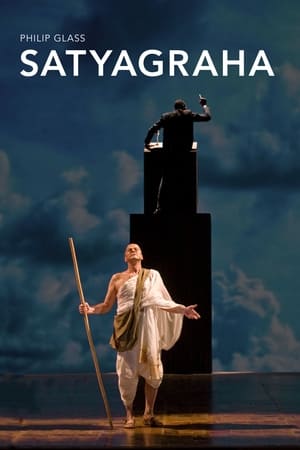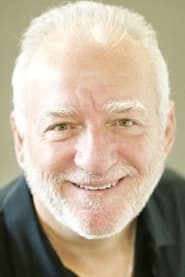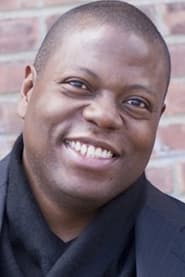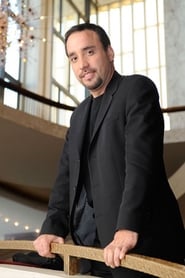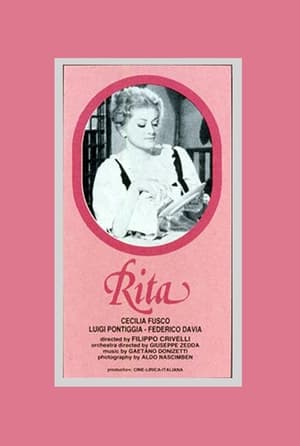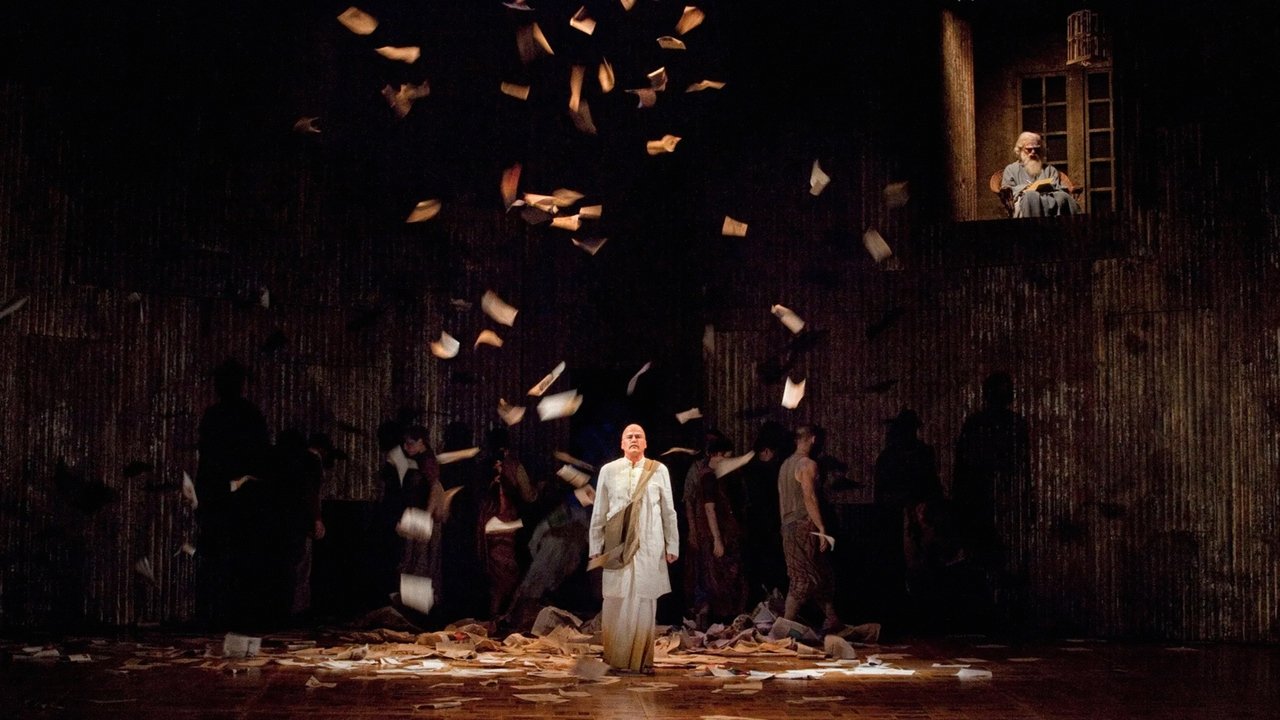
Philip Glass: Satyagraha(2011)
Following the success of his first foray into opera, Einstein on the Beach, revolutionary American composer and musician Philip Glass soon turned to another great figure of the 20th century for inspiration. Set to lines from the Hindu Bhagavad Gita, Satyagraha depicts scenes from the life of Gandhi as he developed his philosophy of non-violent resistance in South Africa between 1896 and 1913. The opera became the second installment of Glass’s Portrait Trilogy, focused on innovators from across history. Satyagraha arrived at the Met during the 2007–08 season, when director Phelim McDermott made his debut with a production that employed everyday materials like newspaper and corrugated tin to create towering puppets and striking tableaus. In 2011, his staging returned, this time recorded live in HD. In this performance, tenor Richard Croft gives a moving performance as Gandhi, leading a remarkable ensemble cast conducted by Dante Anzolini.
Movie: Philip Glass: Satyagraha
Top 10 Billed Cast
Prince Arjuna
Conductor
Recommendations Movies
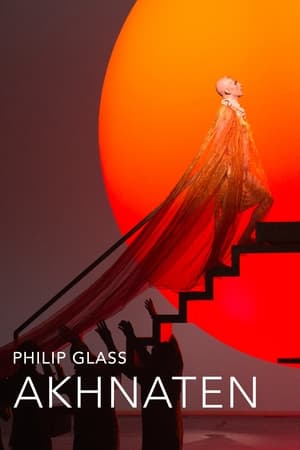 9.0
9.0The Metropolitan Opera: Akhnaten(en)
Philip Glass’ opera “Akhnaten”, premiered in Stuttgart in 1984, forms the third part of the portrait opera trilogy about personalities who have influenced the course of human history. The conclusion of the trilogy deals with the ancient Egyptian pharaoh Akhenaten, who attempted to establish a kind of monotheistic cult around the god Aton during his reign in the 14th century BC, but failed due to the resistance of the priesthood. The production presented here was undoubtedly one of the very great successes of the 2019/20 season at New York’s Metropolitan Opera, due not only to the outstanding cast of singers (led by countertenor Anthony Roth Costanzo) but also to Phelim McDermott’s imaginative staging, which captivates with sometimes breathtaking imagery.
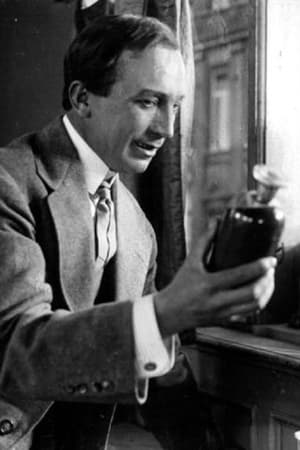 5.0
5.0The Love Potion(da)
The pharmacist Peter Pille and Colonel Sejrsberg's beautiful niece, Inger, are in love. Unfortunately, the Colonel is against the idea of an engagement and generally detests men who court young girls. Peter Pille finds out that the Colonel's negative attitude is due to jealousy and envy, because he himself has never really had luck with the ladies. Maybe a homemade love potion will do the trick? (stumfilm.dk)
The Siege(en)
A team of armed Pakistani militants stage a terrorist attack at the Taj Mahal Palace Hotel in India.
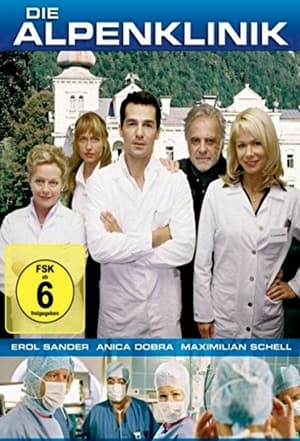 3.0
3.0Die Alpenklinik(de)
After an alleged malpractice that led to the death of his brother, heart surgeon Daniel Guth took the consequences: he gave up his beloved job and retreated into the solitude of nature. At his place of refuge, the Salzburg mountains, the heiress to a private clinic is desperately looking for a capable chief physician. Daniel declines the post, although he finds the woman attractive. When a boy is seriously injured in a bus accident, he is confronted with his trauma again.
 5.0
5.0This Ain't Bebop(en)
This Ain't Bebop is Ralph Bakshi's first live action short, starring Harvey Keitel and featuring Ron Thompson as the beatnik poet and Rick Singer as Jackson Pollock.
Book Bozo(en)
Jimmy Aubrey plays a book agent and on his rounds of selling is induced to substitute for a local fistic star. His adventures in the prize ring furnish a great deal of comedy.
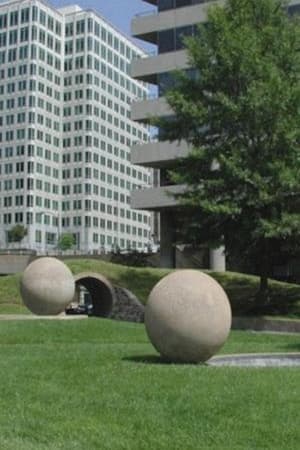 5.0
5.0Art in the Public Eye: The Making of Dark Star Park(en)
This piece documents the process behind the creation of Holt's major public art installation, Dark Star Park, in Arlington, Virginia. The park, which features giant concrete spheres and pipes, allows the visitor to reconsider the experience of space, earth and sky within an urban context. It also serves as a kind of contemporary Stonehenge: once a year, on August 1 at 9:30 am, the shadows of the objects exactly align with outlines on the ground. Interviews with the artist, the architects, engineers, contractors, and the public, among others, reveal Dark Star Park as both a public sculpture and a functioning park that reclaims a blighted urban environment.
 8.0
8.0Reggae Boyz(de)
Plagued with poverty and violence, Jamaica tries to inspire its populace by qualifying their national team, the 'Reggae Boyz', for the World Cup. When their efforts start to fall short, Winnie Schäfer, a colorful German coach, teams up with reggae musicians to unite Jamaica beyond the soccer pitch.
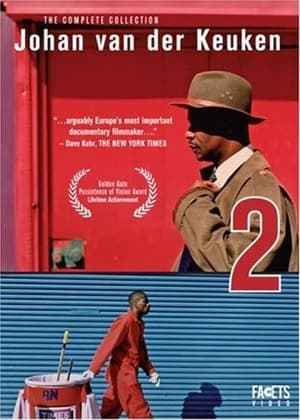 5.3
5.3Amsterdam Afterbeat(en)
Johan van der Keuken: 'We kept the ends of a lot of shots in Amsterdam Global Village: the camera leaves the subject and pans to the sound woman, who quickly taps the microphone. These taps later in the cutting become the references for synchronising picture and sound. This film is the rhythmic sequence of these taps, in which something of a story can be seen.
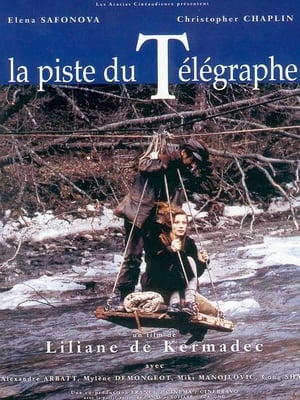 4.0
4.0The Telegraph Route(fr)
This French film chronicles the amazing-but-true story of Lisa Alling who in 1928 successfully walked from New York City to Siberia via the Bering Straight by following telegraph poles. It was shot entirely in the Ukraine. Lisa, a chambermaid, has had enough of American life and wants go home to Siberia. Because she had no money, she decided it was better to walk than stay in the U.S. any longer. An opportunist, she takes whatever food, warmth and even romance that is offered along the way.
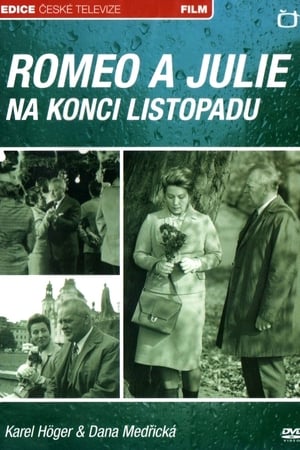 6.0
6.0Romeo a Julie na konci listopadu(cs)
When sixty-year-old Karel Pluhař meets Marie, a woman who is unhappy in many ways, he feels that if he seizes this opportunity, regardless of petty interests and inhibitions, he may find himself on the threshold of new happiness.
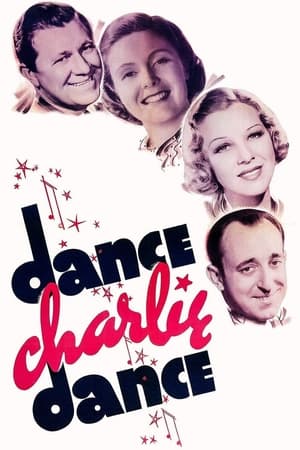 6.0
6.0Dance Charlie Dance(en)
A stage-struck small-towner is tricked in backing a bad straight play, but it turns out to be a unintentional comedy hit. Problems arise, when he is sued for plagiarism.
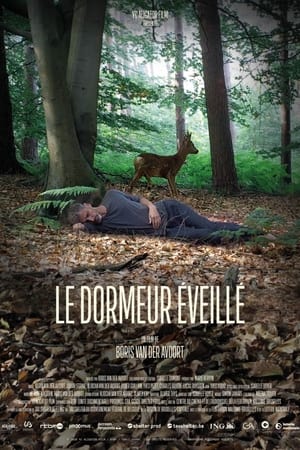 8.0
8.0The Wakeful Sleeper(fr)
B., a film-maker and insomniac, decides to rescue his hours of insomnia from the void by filming his quest for sleep. The insomniac asks questions about these different states of consciousness and about the difficulties humans have in synchronising their social rhythms and biological ones.
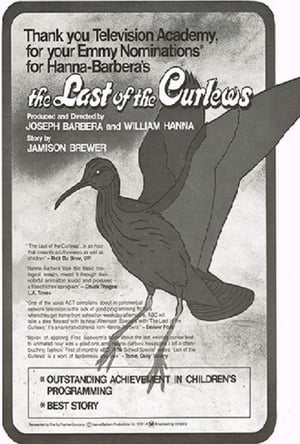 8.7
8.7The Last of the Curlews(en)
After being hunted to near-extinction, the last male Eskimo curlew searches for a mate while making the annual migration from the arctic tundra to the nesting grounds in Argentina.
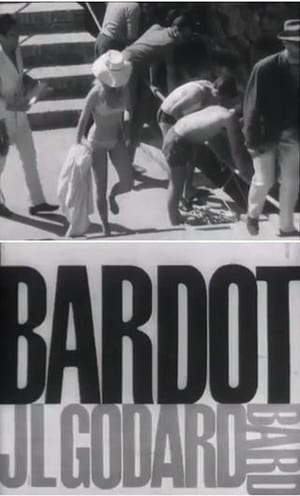 6.1
6.1Bardot et Godard(fr)
A documentary short following director Jean-Luc Godard on the set of Contempt.
Similar Movies
 8.0
8.0Amadeus(en)
Disciplined Italian composer Antonio Salieri becomes consumed by jealousy and resentment towards the hedonistic and remarkably talented young Viennese composer Wolfgang Amadeus Mozart.
 0.0
0.0Carmen - Opéra National de Paris(fr)
The first words uttered by Carmen mark one of the greatest entrances in the history of opera and express all that need be said: “Love is a rebellious bird that no one can tame…” With a devilish sway of the hips and a hint of Andalusian flair, the beautiful cigar-maker sets her sights on a soldier: Don José. Fate will do the rest.
 6.6
6.6Farinelli(fr)
The life and career of Italian opera singer Farinelli, considered one of the greatest castrato singers of all time.
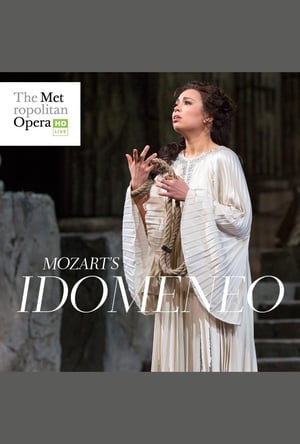 4.0
4.0The Metropolitan Opera: Idomeneo(it)
Mozart’s early masterpiece returned to the Met for the first time in more than a decade with Music Director Emeritus James Levine, who led the work’s company premiere in 1982, again on the podium. Tenor Matthew Polenzani brings both steely resolve and compassionate warmth to the title king of Crete, who is faced with an impossible decision. With her rich mezzo-soprano, Alice Coote sings the trouser role of Idomeneo’s son Idamante, who loves the Trojan princess Ilia, sung with delicate lyricism by Nadine Sierra. Elza van den Heever gives a thrillingly unhinged portrayal of the jealous Elettra. Jean Pierre-Ponnelle’s timeless production blends the grandeur of ancient myth with the elegance of Enlightenment ideals.
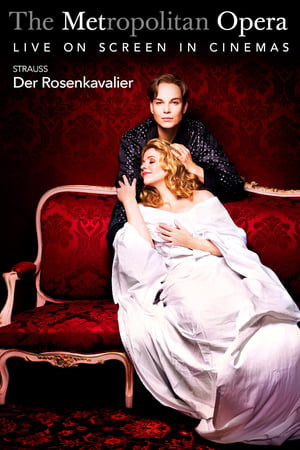 7.0
7.0Der Rosenkavalier(de)
In his new production, Robert Carsen places the action at the end of the Habsburg Empire, underscoring the opera’s subtext of class and conflict against a rich backdrop of gilt and red damask
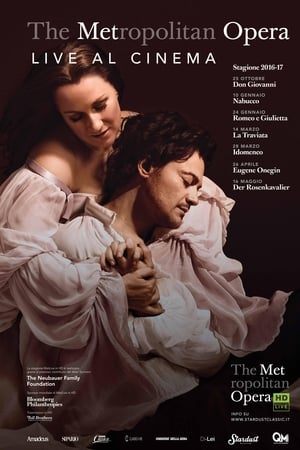 8.0
8.0The Metropolitan Opera: Roméo et Juliette(fr)
Diana Damrau and Vittorio Grigolo are opera’s classic lovers in Gounod’s lush Shakespeare adaptation. Director Bartlett Sher’s “brilliant and inspired new production … is a revelation” (Huffington Post), and has already won acclaim for its vivid 18th-century milieu and stunning costumes during runs at Salzburg and La Scala. Emmanuel Villaume conducts the sumptuous score.
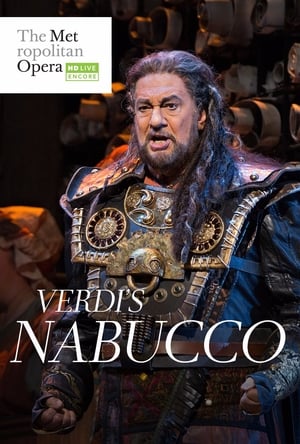 0.0
0.0Verdi: Nabucco(it)
The legendary Plácido Domingo brings another new baritone role to the Met under the baton of his longtime collaborator James Levine. Liudmyla Monastyrska is Abigaille, the warrior woman determined to rule empires, and Jamie Barton is the heroic Fenena. Dmitri Belosselskiy is the stentorian voice of the oppressed Hebrew people.
 7.0
7.0Operette(de)
A musician is offered a job in Vienna as stage director, but his disagreements with the aristocratic opera manager end in abrupt firing in spite of a mutual attraction. He's quickly engaged by another theatre and becomes famous for his lavish stage productions and fine acting, which begins their golden age with Suppé and Strauss.
![Simon Boccanegra [The Metropolitan Opera]](https://image.tmdb.org/t/p/w300/wG8lsDbBYqpj7j3rmge1aBIKDEk.jpg) 0.0
0.0Simon Boccanegra [The Metropolitan Opera](it)
When this sumptuous production by Giancarlo del Monaco opened in 1995, legendary tenor Plácido Domingo gave a riveting performance as the fiery revolutionary Gabriele Adorno, a tenor part. In the 2010 revival, he made history by taking on the baritone title role, one of Verdi’s most fascinating characters, and thrilling audiences with his multifaceted and gripping portrayal. Boccanegra is beset on all sides, juggling political adversaries bent on murder with his love for his long-lost daughter Amelia (Adrianne Pieczonka). James Levine’s conducting brings out all the color and surging emotion of Verdi’s magnificent score.
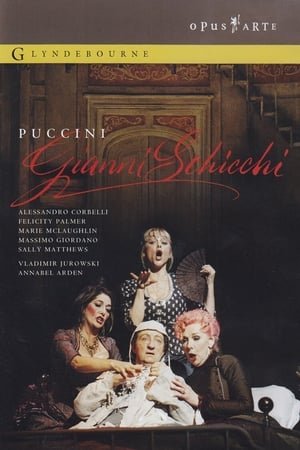 0.0
0.0Puccini: Gianni Schicchi(it)
Opera in one act, libretto by G. Forzano based on Dante's Divine Comedy. Third part of his opera Triptych. The plot is based on canto XXX of "Inferno" from "The Divine Comedy", which are dedicated to the rogue and deceiver Gianni Schicchi, who was punished for his sins: he impersonated a dying rich man in order to make a forged will on his behalf. Gianni Schicchi is Puccini's only comic opera, a brilliant example of a modern opera buffa based on the tradition of Verdi's Falstaff. The most expressive recitative, bubbling melody, sharp character, impetuous tempo distinguish her music. Recorded live at Glyndebourne Opera House, Sussex, UK on 11 July 2004.
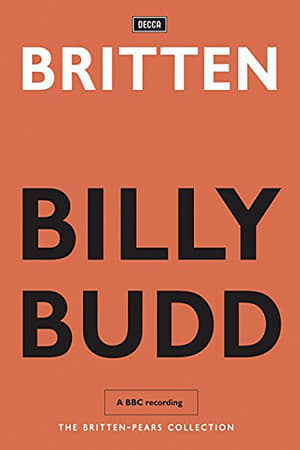 0.0
0.0Billy Budd(en)
A version of Benjamin Britten's opera based on the Melville story. Will the virtuous young sailor Billy Budd be hanged for murder?
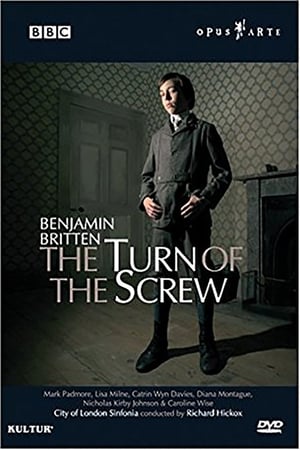 6.5
6.5The Turn of the Screw(en)
The operatic version of the famous story about a governess who fears her two charges are possessed.
 6.7
6.7Carmen(fr)
A film version of the famous Bizet opera, where a soldier (Don Jose) falls in love with a beautiful factory worker (Carmen), but she does not reciprocate his feelings.
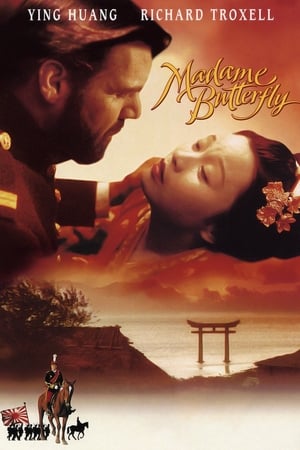 6.4
6.4Madame Butterfly(it)
Cio-Cio-San, a young Japanese geisha, seeks to fulfill her dreams through marriage to an American naval officer. Her faith in their future is shattered by his empty vows and the loss she endures touches something deep within us all.
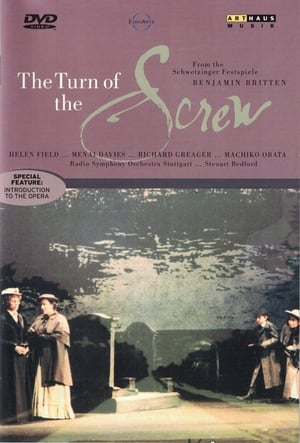 0.0
0.0Britten: The Turn of the Screw(en)
In Benjamin Britten's operatic adaptation of Henry James' masterwork, a naive governess (Helen Field) arrives at a country manor and soon discovers that it holds a murky secret involving her charges and two ghostly servants who wield a sinister influence on them. The taut, atmospheric production also stars Sam Linay, Machiko Obata, Menai Davies and Phyllis Cannan, with the Stuttgart Radio Symphony Orchestra providing accompaniment.
 0.0
0.0Puccini: La bohème(it)
"La Bohème" is one of Giacomo Puccini's most popular and timeless works and the second-most performed opera at New York's Metropolitan Opera. This production, directed by the legendary Franco Zeffirelli, features José Carreras, Teresa Stratas, Renata Scotto and Richard Stilwell. The opera is replete with extraordinary visual beauty as it presents the tragic story of young bohemians struggling to make it in the world.
 7.7
7.7The Metropolitan Opera: The Exterminating Angel(en)
After the acclaimed Met premiere of Thomas Adès's "The Tempest" in 2012, the composer returned with another masterpiece, this time inspired by filmmaker Luis Buñuel's seminal surrealist classic "El Ángel Exterminador", during the 2017–18 season. As the opera opens, a group of elegant socialites gather for a lavish dinner party, but when it is time to leave for the night, no one is able to escape. Soon, their behavior becomes increasingly erratic and savage. The large ensemble cast tackles both the vocal and dramatic demands of Adès's opera with one riveting performance after another. Tom Cairns, who also penned the work's libretto, directs an engrossing and inventive production, using a towering wooden archway to trap the characters onstage. And Adès himself takes the podium to conduct the frenzied score, which features a host of unconventional instruments, including the eerie electronic ondes Martenot.
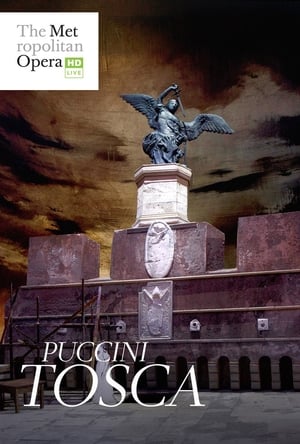 8.0
8.0The Metropolitan Opera: Tosca(it)
Sir David McVicar’s bold new staging of Tosca, Puccini’s operatic thriller of Napoleonic Rome, thrilled Met audiences when it rang in the New Year in 2018. Only weeks later, the production was seen by opera lovers worldwide as part of the Met’s Live in HD series of cinema presentations. In this performance, Bulgarian soprano Sonya Yoncheva is the passionate title diva, opposite charismatic tenor Vittorio Grigolo as her lover, the idealistic painter Mario Cavaradossi. Baritone Željko Lučić is the menacing Baron Scarpia, the evil chief of police who employs brutal tactics to ensnare both criminals and sexual conquests. On the podium, Emmanuel Villaume conducts the electrifying score, which features some of Puccini’s most memorable melodies.
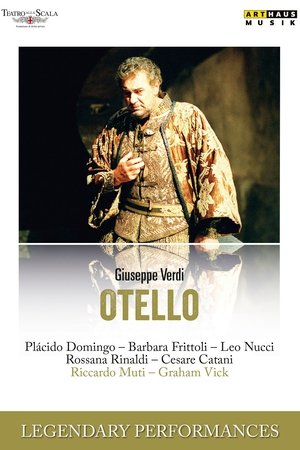 0.0
0.0Otello(it)
This was Domingo's last set of performances as Otello in La Scala. In spite of his relatively advanced age, he is still in excellent form, both vocally and in terms of stage presence. Nucci is also his usual self, delivering a performance of very high standard. Barbara Frittoli is an excellent Desdemona, in good voice and gives a very moving performance. Muti conducts with great emotion and tight accuracy, conveying the full orchestral drama of the score.
